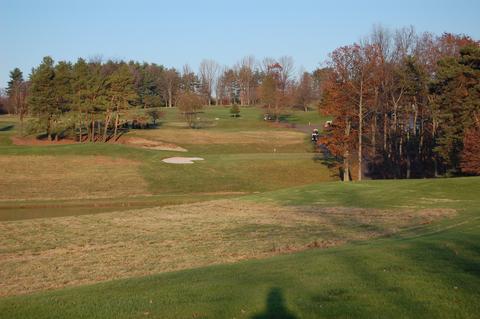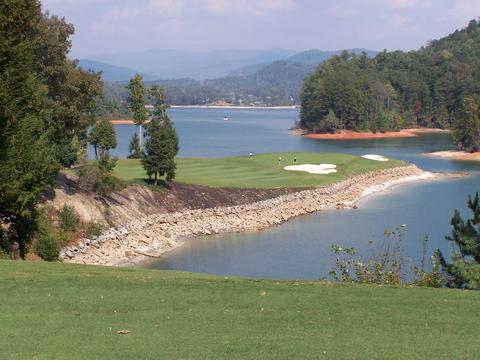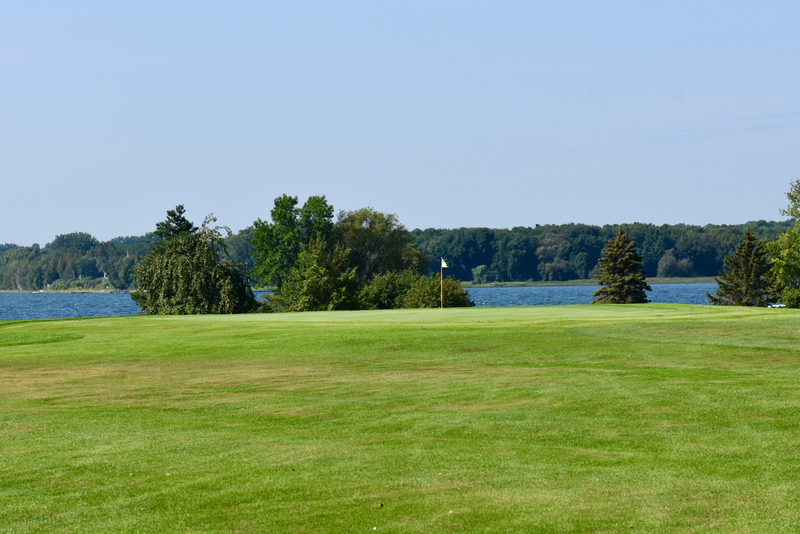
The par 3 15th at Sugarloaf (above) is harder than another tough par 3 at Cliffs at Keowee Vineyard (see bottom) because the Sugarloaf hole provides no bailout.
Quick, when was the last time you played a golf course where the number one handicap hole was a par 3? More often than not, the par 3s on a card occupy handicaps 15 through 18, regardless of how difficult they play. Par 3s are the Rodney Dangerfields of golf holes: They "don't get no respect."
Therefore, it was a surprise and a delight to play the 15th hole at the Geoffrey Cornish-designed Sugarloaf Golf Club, just off Interstate 81 in eastern Pennsylvania, rated as the toughest hole on the course. As my son, Tim, and I stepped to the tee, we could see why. From the tips, which he played, the hole stretches to 266 yards, although the tees were "up" on Sunday at about 245 yards. I played the 220-yard tees. The shot is all carry over water below and left and a 45-degree hill that sweeps up to the front fringe. The pin was about 12 feet from the front edge, making it the devil's playground to try to get close. I opted to balloon a three-wood that hit beyond pin high on the right side of the green and almost rolled off the back right edge, stopping about 45 feet above the hole. Tim flared his three wood way left, but then hit a splendid lob wedge about 50 yards to about seven feet above the hole. I was happy to leave myself a chance for par when I putted five feet past the hole, but I missed it coming back. Tim lipped his putt, and we both settled for bogey. (Keep this quiet, but if I had been offered bogey as I stood on the tee, I might have opted for it!)
Tim and I tried to recall the hardest par 3s we had played. He said this was his toughest, but I recalled #17 at Tom Fazio's Cliffs at Keowee Vineyard, almost as long as the 15th at Sugarloaf, with a lake to the right and behind the green. A bunker guards the right side, more as a buffer between the water and green than a hazard, and one at the rear performs a similar function. But what makes the Sugarloaf three-shotter tougher is that you can bail out at Keowee by hitting short and left, leaving a pitch from a wide open fairway. At Sugarloaf, the only "bailout" is to hit to the back or over the green, leaving a downhill chip along the sloping sloped surface. The 225+ yard shot straight shot may be in your bag but not always in mine. Sugarloaf #15 is the toughest par 3 I have played.
If you know of a par 3 that is tougher than Sugarloaf's, please let us know.
I'll have a few more thoughts about Sugarloaf in this space tomorrow.

The 17th at Keowee Vineyard was the toughest on the Nationwide Tour a few years ago.























